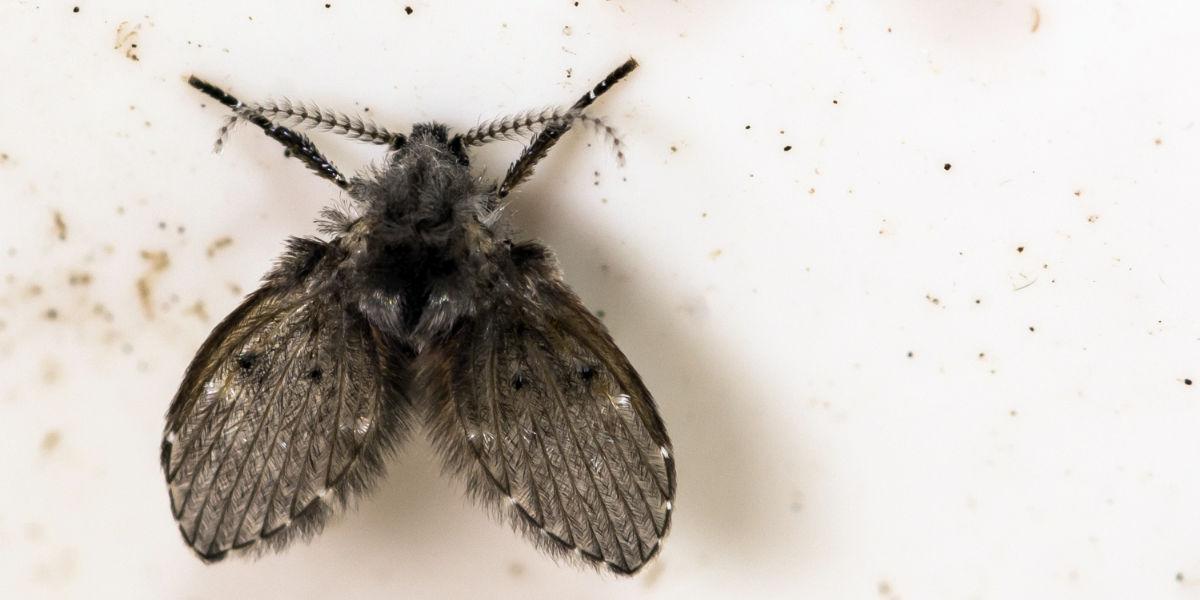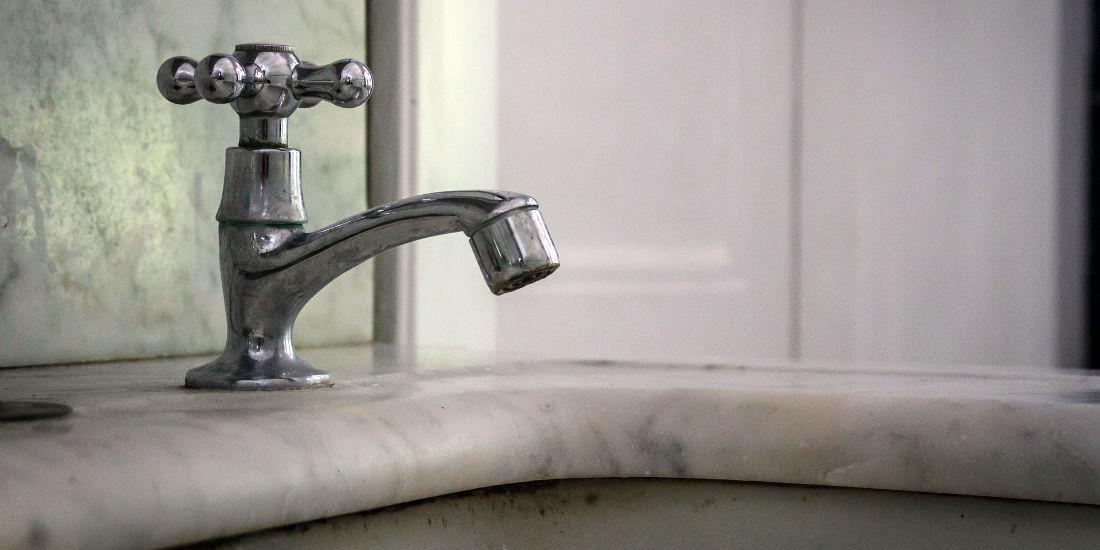
If you have noticed little flies in your bathroom, you may have encountered a drain fly infestation. Though they are relatively harmless, these pests can be a huge inconvenience, making your bathroom and kitchen areas look unhygienic and unsightly. Here, you can find all the information you need on what drain flies are and how to deal with them.
What do drain flies look like?
Drain flies, also known as sewer flies, filter flies, moth flies or sink flies, look similar to the average house fly as they are very small – about an eighth of an inch – and black/brown. They also have a unique vein pattern in their wings, which are covered in tiny hairs. They leave a powdery smudge when crushed.
Drain flies vs fruit flies

The difference in appearance between drain flies and fruit flies is that the former have sleek bodies whereas the latter have spread-out wings, similar to that of the moth. While fruit flies feed on – well – fruit, drain flies feed on the organic matter that ferments inside your drain – however, fruit flies can also be attracted to this sludge, so it’s best to have the intruder identified by a professional.
What is the life cycle of a drain fly?
A drain fly’s life cycle lasts 1-3 weeks. Once they have found a habitat within the organic matter of your drain, this is where they lay eggs that are brown or cream and hatch within 2 days. Drain fly larvae feed on the drain sludge and can survive in high temperatures with low oxygen conditions.
Where do drain flies come from?

Drain flies live in drains, sewers, septic tanks, and sewage-contaminated soil. Often, true to their name, they eventually make their way up to drain areas – they can be found around bathrooms and kitchen sinks, or bath/shower drains. You are more likely to find them if the drain has been stagnant for a long time, for example if you have been away on holiday or if you have a guest bathroom.
How to prevent drain flies
Because drain flies live off the sludge inside your pipes, it makes sense to keep them as clear as possible with regular cleaning. You can do this with a simple mixture of dish soap or vinegar and water.
If you want to prevent drain flies you should try to make sure that your drain water is not sitting stagnant for an extended period of time. You can do this easily by regularly running water once a week for about a minute. The effect will be enhanced if you add half a cup of salt and half a cup of baking powder to the drain and flush it down with a cup of white vinegar.
How to get rid of drain flies

Getting rid of drain flies is tricky – you can get rid of the visible ones but this doesn’t necessarily mean that the root of the problem has been solved, so more flies can still come up from the pipes into your home. We encourage you to contact a professional pest control company who will carry out a comprehensive service within legal health and safety parameters. This also eliminates the risk of using toxic substances that are dangerous to humans.
Do drain flies bite?
No, drain flies only feed on organic matter and are not interested in humans or animals.
Are drain flies harmful?
No, drain flies aren’t harmful, but can be quite a nuisance in large numbers.
How to kill drain flies?
It’s advisable to enlist the help of a professional pest control company rather than resorting to DIY pest control. The breeding site needs to be removed in order for the procedure to be successful.












